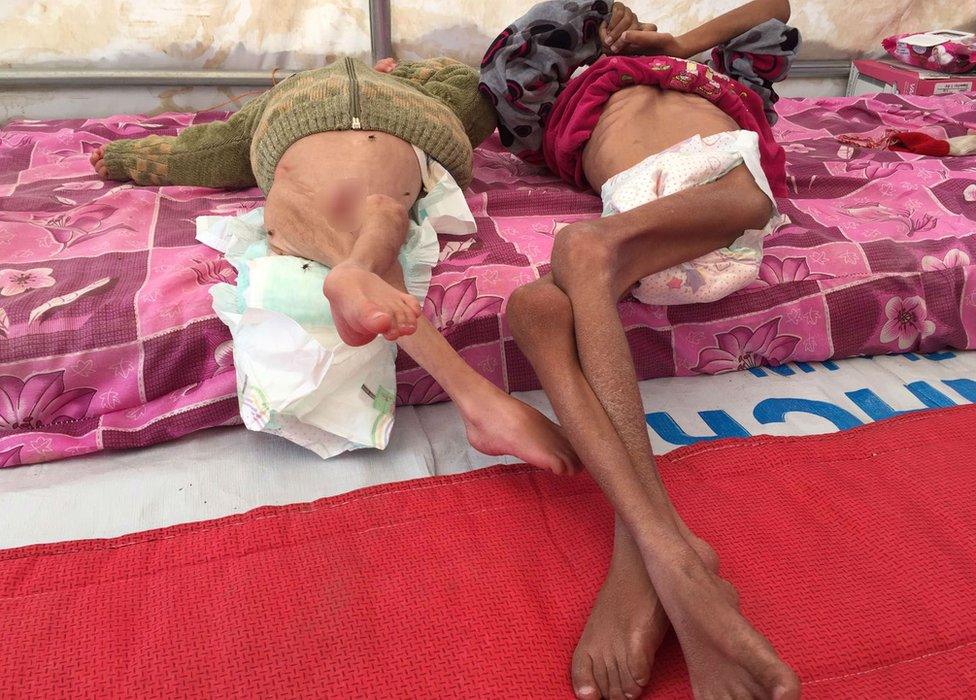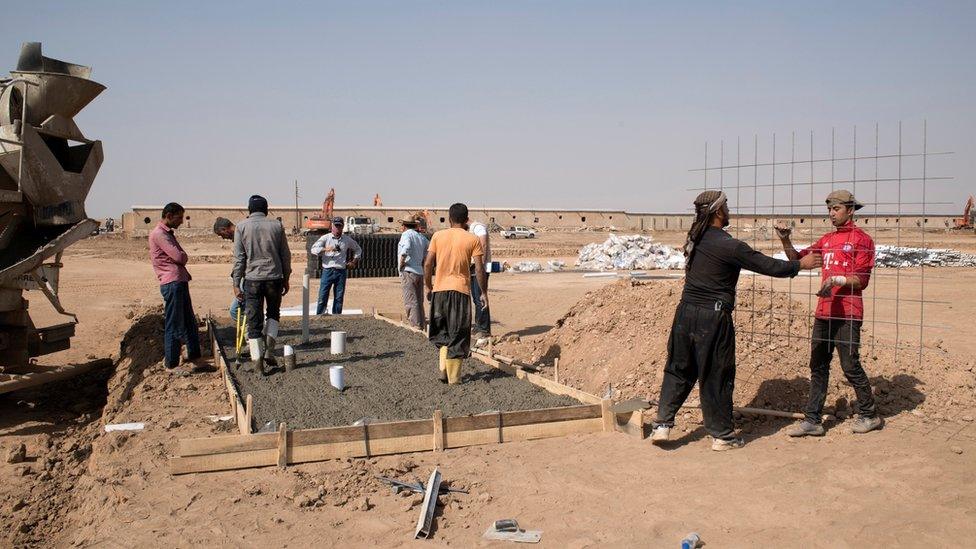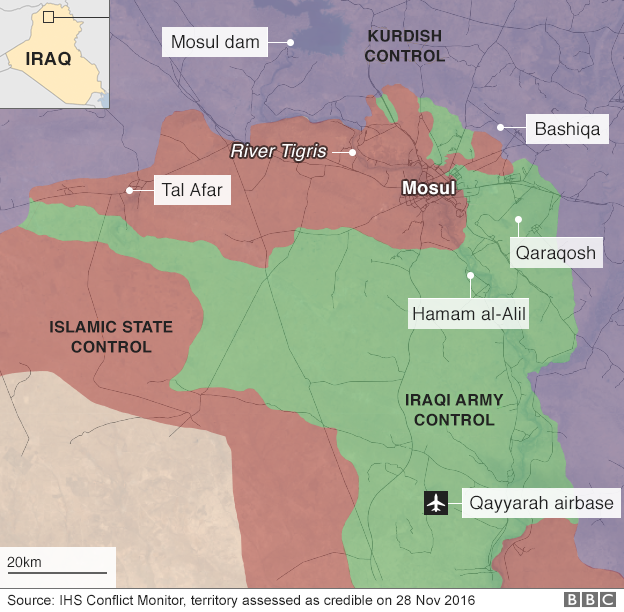Battle for Mosul: 'IS ignored pleas for starving children'
- Published
The children's mother spoke to BBC Radio 5 Live
More than 70,000 civilians have been displaced since Iraq's government launched an offensive to recapture Mosul from so-called Islamic State six weeks ago. Many families have ended up the Hasansham camp, where BBC 5 live Drive presenter Anna Foster found scenes of suffering.
It is an image of horror. Two thin bodies lying on a mattress, skin wrapped around bones, knee joints protruding, ribs clearly and cruelly visible.
The smaller child is just two years old, his mother explains. Flies buzz lazily around him, and when they land on his small face he hasn't the energy to push them away.
When he cries the sound is so thin and weak it's difficult to hear. His brother lies next to him, nine years old but looking like a child not even half that age, his painfully emaciated hips and legs swamped by a nappy. Four days ago, they arrived here after escaping the battle for Mosul.

The two brothers arrived at the camp after escaping the battle for Mosul
Five weeks ago, the Hasansham camp they are in didn't exist.
On the hills around it, once fine houses stand crumbled and broken, razed by coalition air strikes that rained down on the village. This was an IS stronghold, and it's thought as many as 400 villagers joined before dying in the fighting.
The speed at which the camp is growing is staggering. Already, 47,000 people have arrived at this one camp alone, pushed out of their homes in and around Mosul by heavy fighting between Iraqi special forces and IS.
That number swells by around 3,000 every day. White emergency tents stretch as far as the eye can see, row after row. Queues of new arrivals form each day as they collect packs of food, soap and toothpaste to see them through their first week here.

The Battle for Mosul

These newcomers bring tales of life deep inside Mosul. Beheadings in the street watched by children. School lessons that turned from history and geography to fighting and guns.
Many people describe how they sold everything they had to try to buy food, how they struggled to get a job after IS decided they couldn't work. One family described how they had traded their last and most precious possession - the wife's wedding ring - to get something to eat.
Lack of food is undoubtedly a problem here, and the presence of children who appear so seriously malnourished raises important questions.

Hasansham camp was still being built when the Mosul offensive began last month
Is this a tragic but isolated case? Did these young boys have an underlying health condition that's left them so terribly ill? The child's mother insists they were healthy, but a month of no food and no help left them skeletal. She says despite taking them to a hospital, then on to IS leaders to show them the children's perilous condition, her pleas for treatment were ignored.
On the other hand, pictures like this inevitably raise fears that we could be seeing the beginning of an ever-more terrible story emerging from inside Mosul. There's much still to be revealed about conditions inside the city under IS, and we know the group is capable of atrocities.

Starving civilians as their forces stage their last stand in Mosul isn't beyond the realms of possibility. But we can't - and mustn't - jump to conclusions at this stage.
Unicef, one of the many agencies who look after people inside the camps, say although they have seen cases of malnutrition they don't believe they are widespread.
Whatever the wider story may turn out to be, we shouldn't forget about these young boys. Even if their condition is the result of an underlying disability, one would expect to see children so ill in a hospital bed receiving treatment, not struggling to survive on a thin mattress in a makeshift home.
They may only be two out of tens of thousands, but their desperate suffering is more than any child should have to endure.
Anna Foster will be reporting throughout Tuesday on 5 live